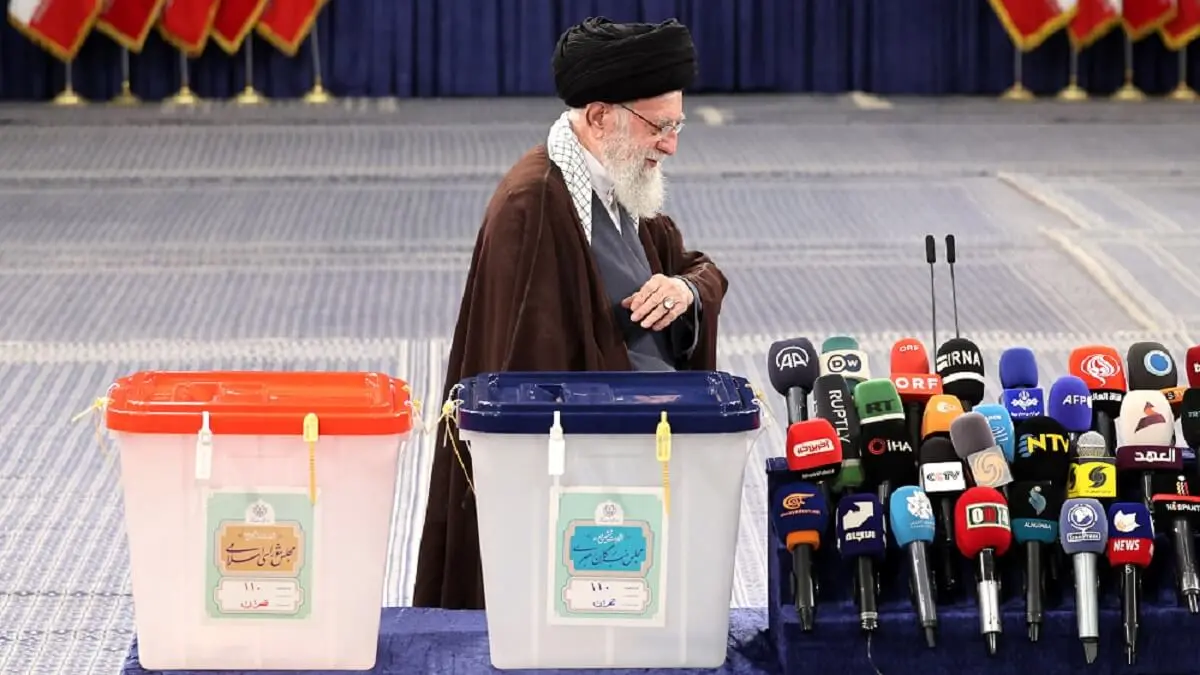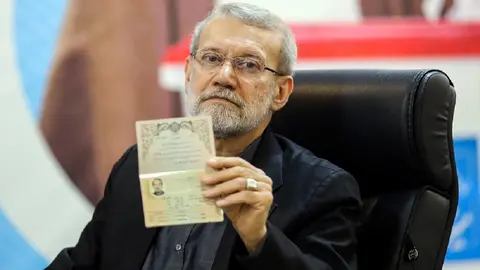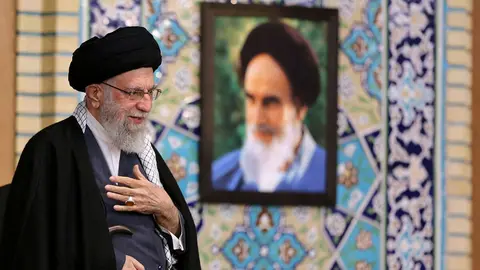"Stand-up comedy" in Iran

Finally, the Guardian Council, whose members are all appointed by the religious dictator, Ali Khamenei, has appointed the actors for the stand-up comedy show in which the new president will be chosen. Of the 80 candidates totally loyal to the religious dictatorship who wanted to stand for the role of the president, who is a masked official, more than 70 were disqualified and only six were selected.
The disqualified candidates included a former president, a former speaker of parliament, several ministers and deputy ministers, some MPs and a senior official in Khamenei's office.
The spectacle was so ridiculous that the former mayor of Tehran, Gholam-Hossein Karbastchi, wrote: "Is there any greater art than establishing a mechanism that turns the main symbol of a country's democracy into a comedy or stand-up comedy show under the name of electoral registration, entertaining the nation for a few days, wasting much of the country's time and budget, and preparing minds for the transition of the republic (to dictatorship)?" (Official Journal Ham-Mihan, 5 June 2024).
Among the six candidates selected for these elections are Saeed Jalili, Alireza Zakani and Seyed-Amirhossein Ghazizadeh-Hashemi, who were among the 7 candidates for the 2021 presidential elections and who acted as supporting candidates of Ebrahim Raisi, the late president, withdrawing in his favour after the televised debates; Mohammad-Bagher Ghalibaf, conservative and current speaker of parliament; Massoud Pezeshkian, former health minister, from the so-called reformist camp. Mohammad Khatami, former president and leader of the reformist camp, had made the reformists' participation in the elections conditional on at least one of their candidates remaining on the approved list, a condition that Khamenei seems to have accepted. Finally, the sixth candidate, Mostafa Pourmohammadi, is also ultraconservative and a member of the Death Commission during the 1988 massacre of political prisoners.
However, beyond this farce of an election, many points can be made. The disqualification of the regime's top officials shows that Khamenei is no longer capable of the slightest manoeuvre. In fact, he believes that he has to get rid of all elements with whom he has the slightest disagreement in order to deal with the overwhelming waves of uprisings. He cannot even tolerate someone like Ali Larijani, who has been speaker of parliament for three terms. Consequently, it has no choice but to foment wars and create obstacles to truce and peace in the Middle East to ensure its survival.
However, among the approved candidates, the presence of Mostafa Pourmohammadi, a member of the death committee during the 1988 massacre, carries an important message. That message is that the regime remains the regime of mass murder and will accept absolutely no reform. The only way for it to survive is to resort to massacres, repression and violence.
Mullah Mostafa Pourmohammadi, like Ebrahim Raisi, was a member of the death committee in 1988 and, like him, is deeply hostile to the mujahideen, the main victims of the massacre. Even as the movement to demand accountability for the 1988 massacre gathered momentum, he clearly stated that he did not regret his actions, adding: "We have not yet settled our accounts with the mujahideen. They are the bitterest enemies of this regime and we must try them one by one in a court of law and condemn them to the maximum penalty".
However, there is a difference: unlike Ebrahim Raisi, Pourmohammadi has disagreements with Khamenei. In the recent elections to the Assembly of Experts, he was initially disqualified, but since he was secretary general of the Association of Combatant Clerics, he was approved again so as not to undermine the regime.
It appears that in this election engineering, given Pourmohammadi's disagreements with Khamenei, he is not Ali Khamenei's main candidate for the elections, and the candidates they want to see emerge from the polls will be Mohammad Ghalibaf or Saeed Jalili.



